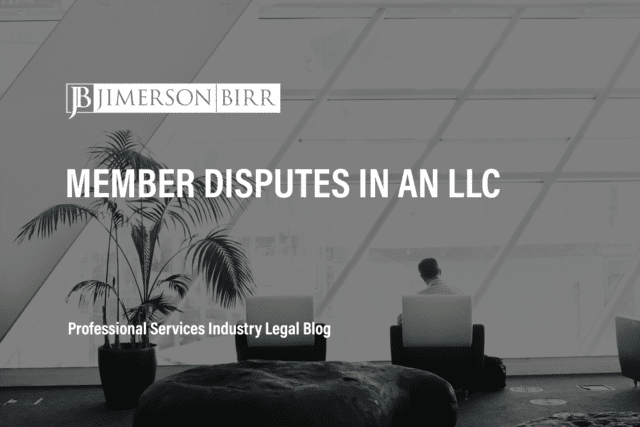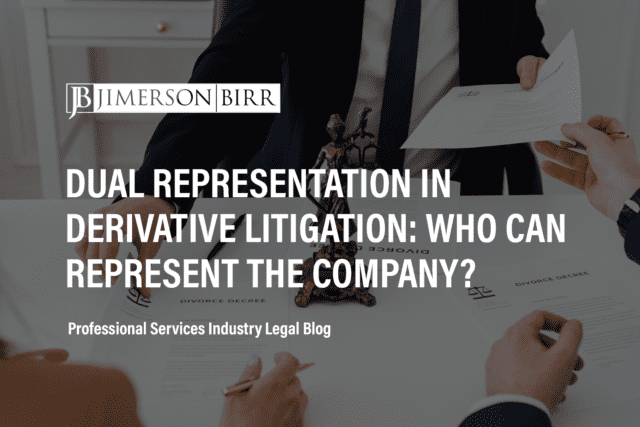What is the breach of fiduciary duty by an officer, director, or manager?
A fiduciary duty is a legal obligation that requires officers, directors, and managers to act in the best interests of their organization and its stakeholders, such as shareholders and employees. When these individuals breach this duty, they can be liable for damages.
Need help with a matter related to a breach of the articles of incorporation, membership agreement, or partnership agreement? Schedule your consultation today with a top shareholder disputes and derivative litigation attorney.
In Florida, which laws and regulations apply to the breach of fiduciary duty by an officer, director, or manager?
In Florida, the laws and regulations that relate to the breach of fiduciary duty by an officer, director, or manager can be found primarily in the Florida Business Corporation Act (FBCA), which governs corporations, the Florida Revised Limited Liability Company Act (FRLA), and Chapter 620 of the Florida Statutes, which governs partnerships.
Under the FBCA, officers and directors owe a fiduciary duty of loyalty and care to the corporation and its shareholders. Specifically, they must act in good faith and with the care an ordinarily prudent person in a similar position would exercise under similar circumstances, and they must put the interests of the corporation and its shareholders above their interests.
The FRLA similarly imposes a duty of loyalty and care on managers of limited liability companies (LLCs), requiring them to act in the LLC’s and its members’ best interests.
Chapter 620 of the Florida Statutes imposes fiduciary duties on partners in their actions towards one another. Fla. Stat. § 620.8404 identifies the duty of loyalty and the duty of care explicitly as fiduciary duties owed to partners.
Additionally, Florida common law also guides the breach of fiduciary duty. Courts have held that officers, directors, and managers owe a duty of loyalty, care, and good faith to their organizations. Accordingly, they can be liable for breach of that duty if they engage in self-dealing, misuse of corporate assets, or other actions that harm the organization or its stakeholders.
How does the breach of fiduciary duty by an officer, director, or manager commonly lead to litigation?
There are several common issues regarding the breach of fiduciary duty by an officer, director, or manager that can lead to litigation. Some of these issues include:
- Conflicts of interest: One of the most common issues in breach of fiduciary duty cases is conflicts of interest. Conflicts of interest can occur when an officer, director, or manager has a personal interest that conflicts with the organization’s best interests. For example, if a director approves a contract with a company they own or have a financial interest in, it could be a conflict of interest.
- Self-dealing: This issue occurs when an officer, director, or manager uses their position to benefit themselves at the organization’s expense. Self-dealing could involve using corporate assets for personal gain or entering into transactions that benefit themselves or their family members.
- Misuse of corporate assets: When an officer, director, or manager uses corporate assets, such as funds or property, for their benefit, it can breach their fiduciary duty.
- Negligence: Negligence can also lead to breaches of fiduciary duty, especially when an officer, director, or manager fails to exercise reasonable care in their duties. For example, suppose a manager fails to supervise employees properly, and as a result. In that case, if an employee causes harm to a customer, the manager may be held liable for a breach of their fiduciary duty.
- Insider trading: Insider trading occurs when an officer, director, or manager uses confidential information to trade stocks or securities. Depending on the circumstances, this can be a breach of their fiduciary duty and can also violate securities laws.
When a set of facts is appropriate to meet the requirements giving rise to the breach of fiduciary duty by an officer, director, or manager, there are many paths a claimant may take. We are value-based attorneys at Jimerson Birr, which means we look at each action with our clients from the point of view of costs and benefits while reducing liability. Then, based on our client’s objectives, we chart a path to seek appropriate remedies.
To determine whether your unique situation may necessitate litigation, please contact our office to set up your initial consultation.
What evidence does a plaintiff generally need to successfully file a lawsuit regarding the breach of fiduciary duty by an officer, director, or manager, and what are common legal defenses to those claims?
To successfully file a lawsuit regarding the breach of fiduciary duty by an officer, director, or manager in Florida, a plaintiff generally needs to present evidence that establishes the following elements:
- The existence of a fiduciary duty owed by the defendant to the plaintiff or the organization;
- The breach of that fiduciary duty by the defendant; and
- The causation of damages to the plaintiff or the organization as a result of the breach.
Some common evidence that can help support a claim for breach of fiduciary duty include corporate documents, financial records, emails, and other communications demonstrating the defendant’s actions and their impact on the organization and its stakeholders.
In terms of legal defenses to claims of breach of fiduciary duty, some common arguments that defendants may raise include:
- Lack of fiduciary duty: Defendants may argue that they did not owe a fiduciary duty to the plaintiff or the organization.
- Good faith: Defendants may argue that they acted in good faith and that any alleged breach was not intentional or malicious.
- Business judgment rule: The business judgment rule provides a legal defense for officers, directors, and managers who make decisions in good faith and in the organization’s best interests. If the decision is deemed reasonable and made after properly considering all relevant factors, the court may defer to the decision under this rule.
- Limitation of liability: Some statutes and organizational documents may limit the liability of officers, directors, and managers in certain circumstances.
- Statute of limitations: The defendants may argue the statute of limitations has expired, which is four years in Florida.
To see what actions or defenses may be available for your unique situation, please contact our office to set up your initial consultation.
Frequently Asked Questions
- What types of damages can a plaintiff recover in a breach of fiduciary duty lawsuit?
Plaintiffs in breach of fiduciary duty lawsuits can recover damages that result from the breach, including lost profits, diminution in value of the organization, and any other financial losses resulting from the breach. In addition, in some cases, punitive damages are available to punish the defendant for their misconduct.
- Can a breach of fiduciary duty claim be settled out of court?
Stakeholders may be able to prevent a liquidation by agreeing to restructure the business or to sell it to another party. However, if the company cannot pay its debts and obligations, a liquidation may be necessary to satisfy creditors.
- Can officers, directors, or managers be personally liable for breaching their fiduciary duty?
Officers, directors, and managers can be personally liable for breaching their fiduciary duty if a breach of fiduciary duty results in damages to the organization or its stakeholders. In that case, the defendant may need to pay damages from their personal assets.
Have more questions about a breach of fiduciary duty by an officer, director, or manager-related situation?
Crucially, this overview of breach of fiduciary duty by an officer, director, or manager does not begin to cover all the laws implicated by this issue or the factors that may compel the application of such laws. Every case is unique, and the laws can produce different outcomes depending on the individual circumstances.
Jimerson Birr attorneys guide our clients to help make informed decisions while ensuring their rights are respected and protected. Our lawyers are highly trained and experienced in the nuances of the law, so they can accurately interpret statutes and case law and holistically prepare individuals or companies for their legal endeavors. Through this intense personal investment and advocacy, our lawyers will help resolve the issue’s complicated legal problems efficiently and effectively.
Having a Jimerson Birr attorney on your side means securing a team of seasoned, multi-dimensional, cross-functional legal professionals. Whether it is a transaction, an operational issue, a regulatory challenge, or a contested legal predicament that may require court intervention, we remain a tireless advocate every step of the way. Being a value-added law firm means putting the client at the forefront of everything we do. We use our experience to help our clients navigate even the most complex problems and come out the other side triumphant.
If you want to understand your case, the merits of your claim or defense, potential monetary awards, or the amount of exposure you face, you should speak with a qualified Jimerson Birr lawyer. Our experienced team of attorneys is here to help. Call Jimerson Birr at (904) 389-0050 or use the contact form to schedule a consultation.


We live by our 7 Superior Service Commitments
- Conferring Client-Defined Value
- Efficient and Cost-Effective
- Accessibility
- Delivering an Experience While Delivering Results
- Meaningful and Enduring Partnership
- Exceptional Communication Based Upon Listening
- Accountability to Goals











